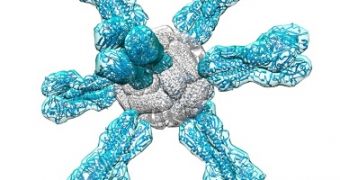A team of researchers writing in the scientific journal Nature describe how an universal vaccine could one day rid people of all the flu forms currently known to science.
The scientists also maintain that, given this vaccine's make-up and its impact on the immune system, it also has high chances of protecting people against flu strains that are yet to emerge.
For the time being, the vaccine has only been tested on animals.
Nature reports that, given the success rates reported when carrying out these experiments, specialists expect that it will prove at least equally effective when administered to people.
The vaccine reportedly works by tricking the immune system into producing a tad more antibodies than it normally would when exposed to the flu vaccines currently available on the market.
When injected in mice, the vaccine caused the rodents to produce roughly 34 times more anti-flu antibodies than they did when injected with a traditional vaccine.
Ferrets also responded well to this treatment, meaning that they produced about 10 times more flu-directed antibodies.
“Each year, influenza vaccines must be rapidly produced to match circulating viruses, a process constrained by dated technology and vulnerable to unexpected strains emerging from humans and animal reservoirs,” the researchers write in the abstract for their paper.
In other words, specialists currently have to guess which viruses are the ones most likely to hit during the coming fly season, and custom-make vaccines according to their predictions.
“This structure-based, self-assembling synthetic nanoparticle vaccine improves the potency and breadth of influenza virus immunity, and it provides a foundation for building broader vaccine protection against emerging influenza viruses and other pathogens,” they further point out.
Apart from announcing that they plan on rolling out human clinical trials as soon as possible, the researchers say that they are focusing on improving the vaccine's availability.
What they mean is that they wish to find cheaper ways of manufacturing it.

 14 DAY TRIAL //
14 DAY TRIAL //